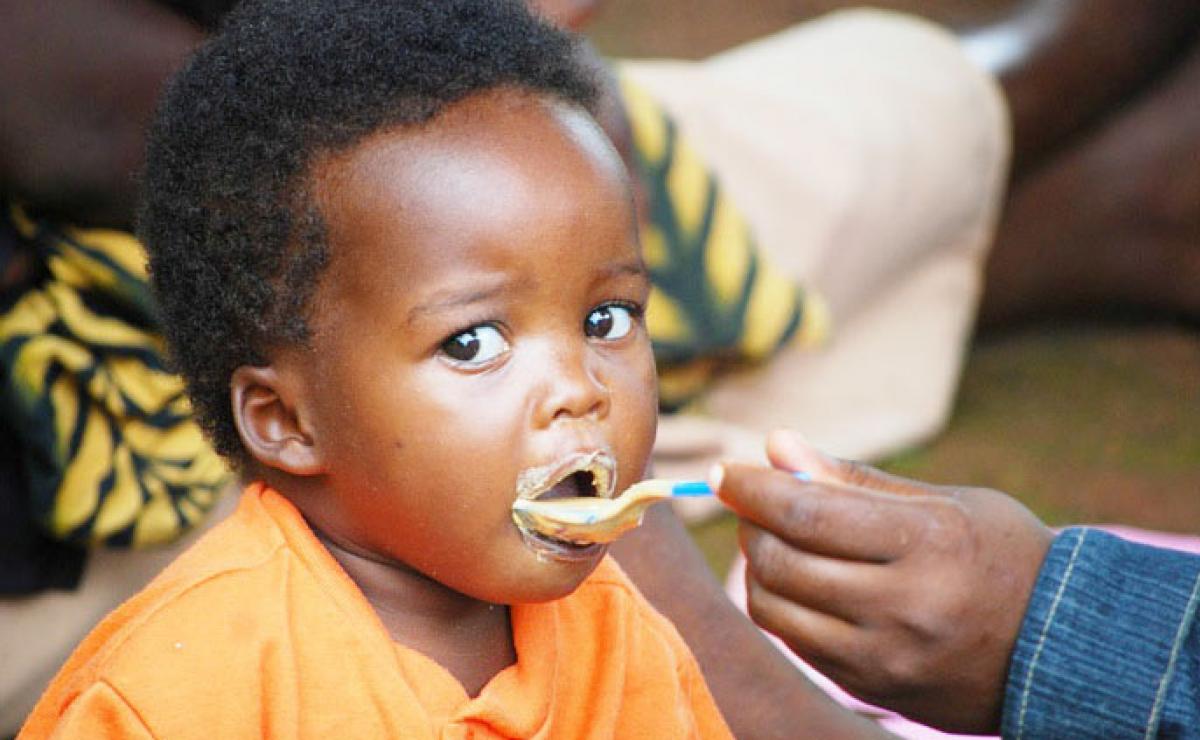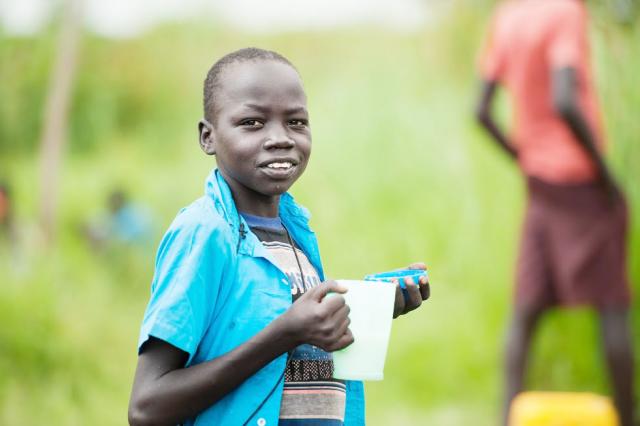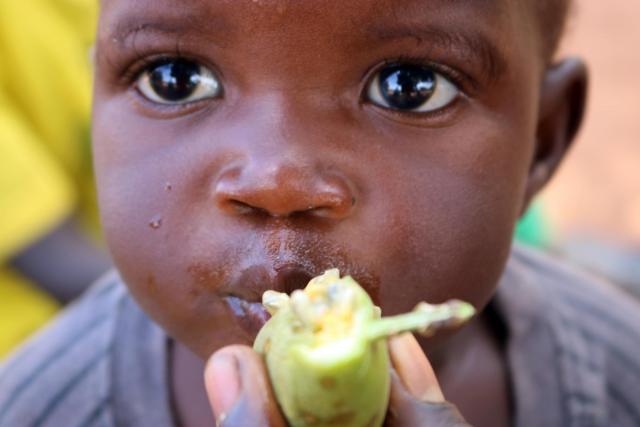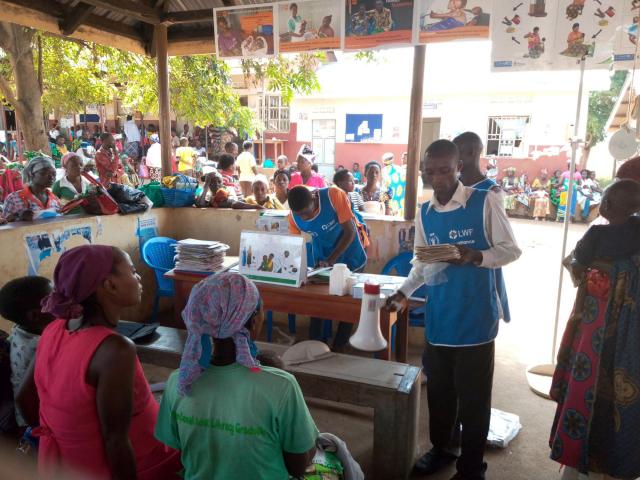Baby Sara saved from the fangs of malnutrition: LWF is defeating malnutrition in Kyangwali settlement

Kyangwali refugee settlement - Joyce Tuhaise birthed her first child in kituti village since the health centre is miles away from her home in Kituti village, Tuhaise had a home birth. Due to cultural beliefs and norms, the new mother painfully waited for an hour before breastfeeding her new born.
“My baby was wailing endlessly due to hunger, this made me uncomfortable but I had to wait since our cultural norms forbid us from breastfeeding in the first hour this is because milk has not yet formed adds Tuhaise.
After an hour, the new mother exclusively breastfed her little girl for the next four months before being hit by a crisis of almost no breast milk. Due to limited income, the mother was left with no option but to enroll her baby to cassava porridge as a complimentary food.
This was when baby Sara’s health and weight started deteriorating. “Sara became thin and experienced recurrent episodes of diarrhea which made her very weak.” Tuhaise.

Bella Kyarisiima a Nutritionist with the Lutheran World Federation (LWF) explains that a new born needs to be exclusively breastfed as soon as its birthed until the next six months. This is because the baby’s digestive system is not yet fully developed to digest and absorb other foods unlike breast milk which is in the simplest absorb-able form. “Breast milk is nature’s perfect food for babies. It contains the perfect mix of fat, protein and carbohydrates for the babies’ developing physiology. Breast milk meets all the baby’s nutrient needs; no other foods or fluids are necessary” Kyarisiima adds that breast milk also contains protective substances that boost the babies’ immunity to diseases.
After various visits to the doctor’s office, Tuhaise's 12 months’ child was identified by Kyarisiima one of LWF’s Nutritionist during a Community Outreach on Prevention of under nutrition in children under five years. This was conducted by LWF nutrition team to kituti village in order to sensitize the community about prevention of under nutrition in children less than five years and to identify children with under nutrition and enroll them on programme.
“I identified the baby because she looked so thin and frail with visible ribs and thin brown hair.” Says Kyarisiima

After a thorough check up, baby Sara’s nutritional status was found severe Acute Malnutrition by anthropometric measurements with a mid-upper circumference (MUAC) of 9.5cm (normal MUAC for children under 5 is ≥12.5cm).
To rescue baby Sara, Tuhaise was informed about her condition – malnutrition. The mother was advised on proper hygiene practices, attachment and positioning while breastfeeding. She was also reminded that every nursing mother is capable of producing enough breast-milk as long as they increase the frequency of breastfeeding, have a positive attitude towards breastfeeding and also give their baby enough time.
Tuhaise was advised on the best foods to feed her baby and was also equipped with knowledge on preparation of nutritious foods including various types of porridge for her and the baby.

“We ensured that baby Sara was admitted to Kyangwali health centre to receive inpatient therapeutic care. We also offered baby Sara nutritious foods that is corn soy blend through the Maternal child health nutrition (MCHN) Programme.” Says Bella Who adds that LWF’s Nutrition team continuously visited Tuhaise and baby Sara to ensure that she (she) was on the road to healing.
Five Weeks down the road, baby Sara successfully recovered from acute malnutrition. At 13 months, baby Sara currently weighs 8Kgs, which is normal for a toddler of her age.
“My baby is perfectly fine, the diarrhea episodes are history and I also have enough breast milk to feed her.” Tuhaise boasts of her health little girl.
Sarah continues to receive nutritious supplementary food under the Maternal and child health nutrition (MCHN) and targeted supplementary feeding programme(SFP)and is on the right track of completing her immunization schedule. “I pray that nutrition services reach more homes in Kyangwali, because if they do, more lives will be saved.” Adds Tuhaise.
With funds from the World Food Programme (WFP), LWF has supported thousands of Congolese refugees and host community residents in Kyangwali settlement with health and nutrition education, supplementary foods, establishing kitchen gardens as well as counselling on infant and young child feeding.
With funds from the World Food Programme (WFP), LWF implements humanitarian activities aimed at preventing and mitigating effects of malnutrition in Kyangwali refugee settlement.

